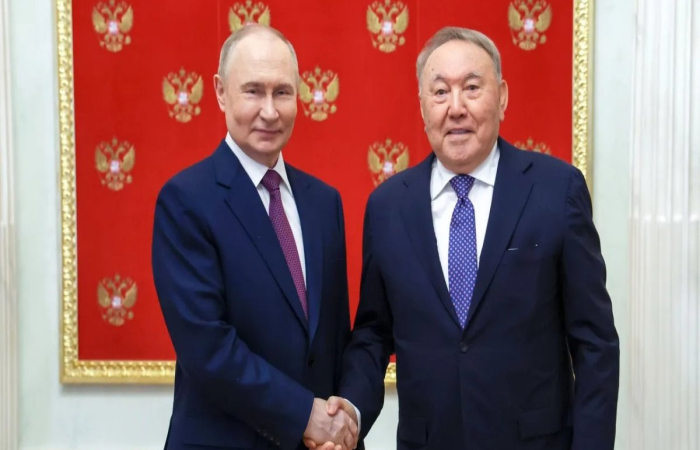Russia has threatened Armenia with "extremely negative consequences" if it were to ratify the founding treaty of the International Criminal Court (ICC) after the country's constitutional court on Friday (24 March) found that the Rome Statute does not contravene the Armenian constitution.
Following last week's ruling by the Armenian constitutional court, the country is now on track to become a party to the Rome Statute. If it were to join the Rome Statute and thereby accept the jurisdiction of the ICC, it would be obliged to arrest the Russian President Vladimir Putin if he were to visit Armenia as the ICC on 17 March issued an international arrest warrant over the alleged illegal deportation of people, including children, from Ukraine to Russia.
Armenia's motivation to ratify Rome Statute does relate directly to Russia's invasion of Ukraine, however. If Yerevan were to ratify the Rome Statute and become a party to the ICC, according to Justice Minister Grigor Minasyan it would allow Armenia to appeal to the ICC over alleged "Azerbaijani aggression" against Armenia.
At the end of December last year, Armenian Prime Minister Nikol Pashinyan asked the constitutional court to take another look at the Rome Statute's conformity to the constitution after it was initially ruled unconstitutional in 2004.
In order to become a signature party to the Rome Statute, it must be ratified by the Armenian parliament. Under Armenian law, the government has up to three months to seek parliamentary ratification.
"Extremely negative consequences"
Speaking to Russia state media outlet RIA Novosti on Monday (27 March), an unnamed source said "Moscow considers absolutely unacceptable official Yerevan’s plans to join the Rome Statute of the International Criminal Court against the backdrop of the recent illegal and legally void ‘warrants’ of the ICC against the Russian leadership." The source also warned of "extremely negative consequences" for Moscow-Yerevan bilateral relations.
Following the ruling last week, Yerevan has remained non-committal about ratifying the Rome Statute. According to RFE/RL's Armenian Service, senior lawmaker from the ruling Civil Contract party Armen Khachatrian said that its parliamentary group had not discussed the issue, and did not rule out delaying the ratification process.
"Armenia will do what is required by its national interests," said Khachatrian. "We must take into account the fact that the Russian Federation is our strategic ally and we have strategic treaties with Russia. The whole world understands that."
Opposition politicians have on the other hand accused Pashinyan of risking further damage to Russia-Armenia ties by trying to "please the West" by becoming a party to the Rome Statute.






